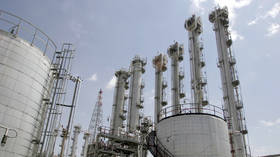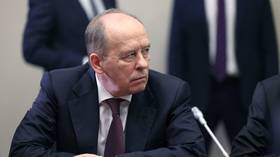‘Big loss’ if Iran’s nuclear deal scrapped & regarding Iraq, US threats are ‘not helpful’ – German FM

The nuclear deal signed between major world powers and Iran after years of tough talks could be on the brink of collapse after Tehran announced it will throw out all constraints on uranium enrichment, the German FM warned.
The first week of the year saw more bad news coming in, with Iran saying it will cease sticking to limitations on enrichment, levels of enrichment and the stock of uranium written down in the 2015 nuclear deal.
The announcement apparently unnerved Germany, one of the three European countries that have been trying to save the deal after Donald Trump’s abrupt decision to pull the US out of it in May 2018. “We will definitely talk to Iran again,” Foreign Minister Heiko Maas told Deutschlandfunk radio on Monday.
He said Iran’s actions are “not consistent with the agreement” and could lead to a calamitous outcome. “No one wants Iran to come closer to obtaining nuclear weapons,” the top diplomat stated.
This could be the first step to the end of this agreement, which would be a big loss so we will weigh this up very, very responsibly now.
Maas added that “we as Europe” will make a contribution to ensure that every opportunity is used “to give diplomacy another chance.”
As part of the 2015 accords, Iran conceded to limit its nuclear activities, especially enriching uranium – a key element used to produce a nuclear weapon – and allow international inspections in return for the lifting of sweeping economic sanctions.
But Trump’s withdrawal from the deal saw Iran gradually scaling back its commitments under the agreement. Throughout 2019, it had been activating new centrifuges and enriching uranium to levels banned under the agreement.
Tehran was expected to announce its latest stance on the agreement just before a US drone strike near Baghdad killed General Qassem Soleimani, the longtime commander of the Quds Force, the secretive part of Iran’s elite Islamic Revolutionary Guards Corps.
Also on rt.com Enrichment based on technical needs: Iran rolls back on 2015 nuclear dealThe targeted assassination has raised the ire of Iraqi leadership who bluntly said it violated the country’s sovereignty. Local MPs passed a resolution calling for a complete withdrawal of foreign forces, to which the White House responded by threatening penalties that would “make Iranian sanctions look somewhat tame.”
To Maas, such threats “are not helpful” given the tensions that flared up in the region. “I don't think that it is possible with threats to convince Iraq, but with arguments,” he told Deutschlandfunk.
Like this story? Share it with a friend!














